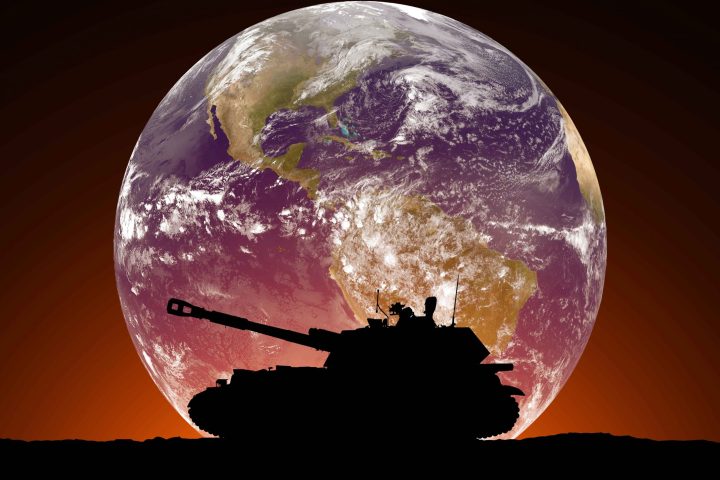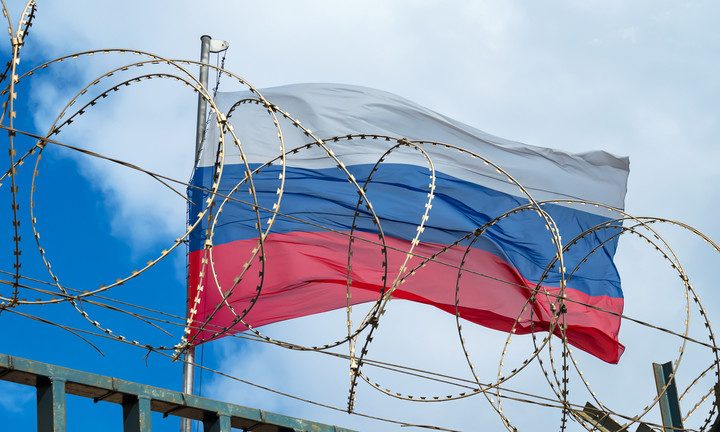Wars are often explained on the basis of political-cultural-ideological variables. Accordingly, the parties are parties to an irreconcilable contradiction based on these variables. Even in the most peaceful times, war is a strong possibility. A spark can turn it into a fire.
However, war has direct or indirect material causes. In the ancient world, wars were fought for the capture, control and defense of agriculturally productive and commercially key geographies. In other words, the motive of ancient wars was material in the economic sense. In the modern world, in a capitalist framework, economic interest, sharing, etc. are the main dynamics of war. As such, we can talk about a continuity between ancient wars and modern wars. But we should not forget that the relations between economy and war are actually multi-layered. Understanding and solving wars based on growth, expansion, etc., wars of division, for example, allows us to see only the surface layer. In the middle and lower layers, i.e. the layers that require a deeper look, one can see the vital function that war plays in getting out of economic constraints and depressions. It is possible to trace this layer very clearly in the shaping of the modern West. Europe, which had been living in feudal fragmentation and entrapment, managed to break out of its cocoon by organizing the Crusades. It is said that the Crusades were fought to liberate the lands considered sacred for Christians, especially Jerusalem. However, this series of wars was actually waged by poor Europe to plunder the rich East and seize its riches. As a matter of fact, the state that suffered the most casualties and destruction in this plunder was Eastern Rome, which was Christian like the invaders, albeit of a different sect.
Economically, the Crusader Wars increased demand, boosted crafts and manufactories, and revitalized trade and monetary relations. In economic terms, the period known as the revival of the Eastern Mediterranean trade, which is somewhat passed off as such, is actually the first major stage of modern capitalism. Without the Crusades, probably neither the Renaissance nor the other critical processes that followed would have happened. In short, the Renaissance, which we can translate as Rebirth if we look at it dialectically, is the fruit of bloody wars.
Capitalism, the dominant economy of the modern world, is no different. For example, civil wars are the work of capitalist centralization, standardization and integration dynamics. This is precisely what the so-called center-periphery conflicts express. (The intervention of ethnic or sectarian variables does not correspond to the essence. They are at best complementary). This is what the value of rationality without bones, stripped of emotions, subjectivity and ultimately of morality, which modernity sanctifies, corresponds to. Although often described as monadic and discrete, modern philosophy and science and interest-based realpolitik are more intertwined than one might think.
The globalization of capitalism and the construction of a world division of labor was also achieved through wars. We know that this is called wars of division in the literature.
But one of the most important points is that wars are related to the fact that capitalism, which has at its core an irrational basis of conflicting supply and demand, is constantly generating crises and that war plays a unique role in overcoming these crises. It is a disability and the inability to create an equally large purchasing power to match large volumes of production. In order to revive the dampened demand, capitalism organizes wars. This is the secret behind Hegel’s statement that “War dissipates the dark clouds gathering over the world”.
In order to overcome crises, capitalism has devised two other ways besides war. The first is redistribution and the other is intensive and extensive debt relations. The first was tried after World War II to eliminate the nuclear threat. Although it undermined the principle of profit maximization, capitalism took the risk. The expectation was that productivity would increase as well as costs. But it did not. Taxes and wage increases increased costs while productivity fell. To overcome this, economies were financialized, and through widespread credit relations, an artificial purchasing power was created and pumped globally, the gift of which was a society of frenzied and degenerate consumerism in which all of humanity’s qualified savings were sacrificed. This has been an expensive experience. Financial economies that inflated and spiraled out of control, making everyone indebted and eventually unpayable, brought about the end of the economy itself. The global inequality gap widened; unemployment and mass lumpenization increased. Mass demographic movements intensified, etc.
Processes such as global economic stagnation, declining production and falling demand have deepened with the pandemic. The question now is how to get out of this situation. It seems that the rapid militarization of economies is returning the system to the first method, that is, the method of resolving crises with war. All the structures that were established after World War II and that pushed the war out of the central capitalist world by attributing it to the semi-center and marginal worlds are no longer functioning. Don’t be deceived by proxy wars; now the center world itself, through the G7, wants the war to settle accounts with the semi-center worlds like Russia and China and the marginal worlds like Africa. The US and EU economies, which have stalled and suffered heavy losses, are being revived by war spending. Biden’s relative economic success is nothing but the revival of the US arms industry. R. Sunak’s open declaration that the UK economy has now turned into a war economy, Germany’s announcement that they have started to invest billions of dollars in a war economy, Japan’s revival of militarism after decades of negative interest rates and eating from the table are other manifestations of the process. Even China, the most dynamic and largest economic power in the world today, cannot prevent the process. It is also taking up arms. It is now clear that the course of events will lead to a global war that will bring about massive destruction… There is no turning back on the horizon.





